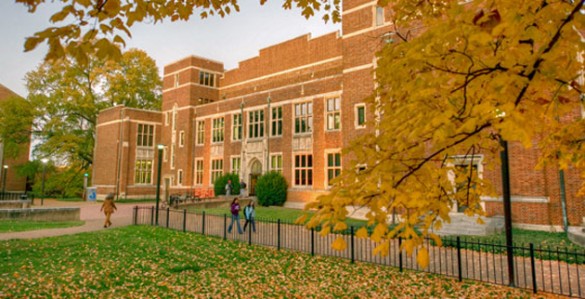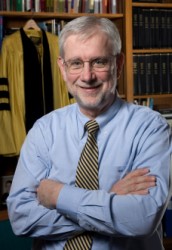
The Council on Library and Information Resources and Vanderbilt University have established a committee to examine emerging national-scale digital projects and their potential to help transform higher education in terms of scholarly productivity, teaching, cost-efficiency and sustainability.
The group, called the Committee on Coherence at Scale for Higher Education, comprises college and university presidents and provosts, deans, university librarians and association heads. The committee will provide the leadership necessary to ensure that these projects are designed and developed as elements of a larger and encompassing digital environment.
“The future of higher education rests on the ability to reconceive ourselves holistically,” CLIR President Chuck Henry said. “The components of scholarly communication—discovering, reconstituting, publishing, preserving and sharing knowledge—must be understood as interrelated and interdependent. New digital projects have begun to flourish within higher education that, if successful, could create genuine interdependencies—deep collaborations that could redefine our academic environment.”

“The work of this committee will play a crucial role in shaping digital access to scholarly works for students and faculty as well as the broader public,” Vanderbilt University Provost Richard McCarty said. “Vanderbilt is pleased to partner with CLIR on this exciting effort and we will engage our campus community as the project moves forward.”
The committee will focus on research and analysis of the large projects and their correlation; initial costs, operating costs and business plans for sustainability; and benefits and transformational aspects. Examples of these projects include the Hathi Trust, the Digital Public Library of America, the Digital Preservation Network and data curation centers. Results of the committee’s work will be publicized regularly.
“This array of national-scale projects offers an enormous opportunity for educational organizations and institutions to build new bases of support, reach new constituencies, cultivate funding agencies and build lasting, mutually sustaining connections between the public and private sectors,” said Henry.
Members of the Committee include:
—Edward Ayers, president and professor of history, University of Richmond
—Paul Courant, university librarian and dean of libraries, Arthur F. Thurnau professor, Harold T. Shapiro collegiate professor of public policy, professor of economics and of information, faculty associate in the Institute for Social Research, University of Michigan
—Connie Vinita Dowell, dean of libraries, Vanderbilt University
—Rachel Frick, director, Digital Library Federation, CLIR
—Chuck Henry, president, CLIR
—Geneva Henry, executive director, Center for Digital Scholarship, Rice University
—James Hilton, vice president and chief information officer, University of Virginia
—Michael Keller, university librarian and publisher of Stanford University Press, publisher of HighWire Press, director of academic information resources, Stanford University
—Rick Luce, dean, University Libraries, professor and Peggy V. Helmerich Chair, associate vice president for research, University of Oklahoma
—Richard McCarty, provost and vice chancellor for academic affairs, Vanderbilt University
—Diana Oblinger, president and CEO, EDUCAUSE
—Bernie Reilly, president, Center for Research Libraries
—Joan Hinde Stewart, president and professor of French, Hamilton College
—Elliott Shore, chief information officer, Constance A. Jones director of libraries, professor of history, Bryn Mawr College, incoming executive director of the Association of Research Libraries
–John C. Vaughn, executive vice president, Association of American Universities
—Gary Wihl, dean, Faculty of Arts and Sciences, Hortense & Tobias Lewin distinguished professor in the humanities in Arts and Sciences, Washington University
The committee will hold its first meeting in January 2013.
The Council on Library and Information Resources (CLIR) is an independent, nonprofit organization that forges strategies to enhance research, teaching and learning environments in collaboration with libraries, cultural institutions and communities of higher learning.